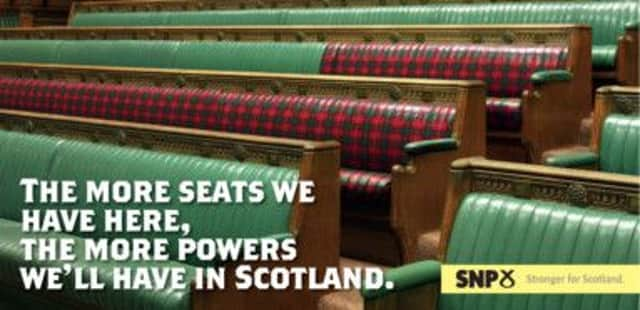Leaders: Commons courtesy and role of kingmaker


Partly this is a consequence of the membership surge that has made it the UK’s third-biggest political party, eclipsing the Lib Dems. Partly, too, it stems from polls that show the Nationalists may overtake the Lib Dems in numbers of seats at Westminster.
But mostly it is down to the fact that the general election in May is too close to call, and that smaller political parties in Westminster may be able to act as kingmakers in a hung parliament, delivering the keys of 10 Downing Street to either Ed Miliband or David Cameron.
At a price, of course.
Advertisement
Hide AdAdvertisement
Hide AdIt was this prospect that led the Chancellor, George Osborne, to object to the SNP’s hung parliament strategy yesterday.
Of course, Mr Osborne’s outrage may be connected to the fact that Nicola Sturgeon has said her party will on no account support a Conservative-led administration. Instead, the SNP’s overtures are aimed only at Mr Miliband.
CONNECT WITH THE SCOTSMAN
• Subscribe to our daily newsletter (requires registration) and get the latest news, sport and business headlines delivered to your inbox every morning
Mr Osborne is wrong to object to the SNP’s potential role as kingmaker. If Nationalist members are elected to the Westminster parliament, those MPs are entitled to have a say in which party forms the UK executive branch of government. That is one of the reasons we send them to the green benches – to represent our views on how the UK is governed.
Mr Osborne’s attitude is a curious one from a politician who fought hard for much of the past three years to save the United Kingdom. Is he saying the SNP is only entitled to exercise power in its own backyard? That would be outrageous from a supposedly unionist politician.
And yet, while the SNP has every right fully to exercise its influence at UK level, there may be consequences for so doing.
For many years the party has operated a self-denying ordinance, promising not to vote on English-only legislation in the Commons. This was a principled position. But, according to Alex Salmond, it is one they may ditch.
Exact SNP plans are so far unclear. But if they do indeed intend to vote on English-only matters at Westminster, to maximise their usefulness to a future Miliband government, then the SNP will be inviting the charge of hypocrisy.
Advertisement
Hide AdAdvertisement
Hide AdIn the pre-devolution era, the Nationalists quite rightly condemned the democratic deficit implicit in English Tory MPs voting on matters of Scottish health and education. Is the SNP really prepared to do the same in reverse, with Scottish MPs voting on England-only legislation?
Where is the consistency – not to mention the decency – in that? Would it not invite a justifiably angry backlash from mainstream English opinion?
The SNP is, of course, entitled to play a full role on the Westminster stage. But it should pause and consider the consequences of certain actions.
A public inquiry too soon
CALLS for a public inquiry about the spiralling cost of the new V&A Museum outpost on the Dundee waterfront are premature.
Reports that the cost has doubled to £80 million are alarming, and there are undoubtedly questions to be asked about how the amount of public money committed to the project was allowed to overrun to such an extent.
Labour politicians, in particular, would like to dig into the dealings between the local Dundee council – which is run by the SNP – and the SNP administration at Holyrood, which is proving generous with the cash required to bring the project to completion.
How much scrutiny has there been as to whether this extra funding was justified? And what accounting and political controls have been in place?
Let us be clear, this is an admirable project in many ways. It involves a world-class architect – Kengo Kuma – and a museum brand with global reach. When it finally opens its doors – whenever that may be, the latest estimate is 2018, four years later than planned – it will be one of Scotland’s cultural jewels.
Advertisement
Hide AdAdvertisement
Hide AdBut this is a country with raw memories of grand public projects that ran over budget. The Holyrood building debacle was a stone in Scotland’s shoe for much of the first decade of this century. Experience also teaches us that public inquiries can often simply send good money after bad, costing millions without ever revealing much that anyone did not already know, and seldom bringing anyone to account for their actions.
This project does not demonstrate the scale of financial mismanagement that would warrant an inquiry. Not yet, at any rate.
SCOTSMAN TABLET AND IPHONE APPS